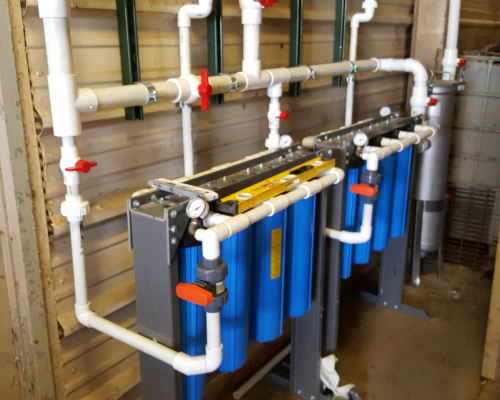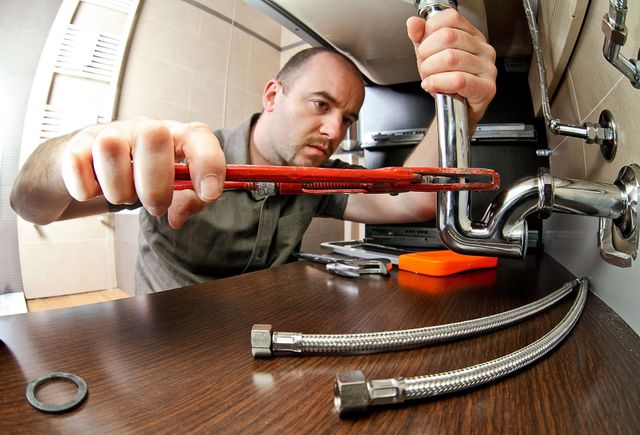What're your thoughts and feelings on The Inner Workings of Your Home's Plumbing?

Recognizing exactly how your home's plumbing system functions is vital for each home owner. From providing tidy water for alcohol consumption, cooking, and bathing to securely removing wastewater, a well-maintained plumbing system is essential for your family members's health and wellness and convenience. In this thorough overview, we'll explore the intricate network that comprises your home's pipes and deal pointers on upkeep, upgrades, and handling typical concerns.
Intro
Your home's plumbing system is more than just a network of pipelines; it's a complex system that guarantees you have access to clean water and effective wastewater elimination. Understanding its elements and how they collaborate can assist you stop pricey repair services and make certain everything runs smoothly.
Basic Parts of a Pipes System
Pipelines and Tubes
At the heart of your plumbing system are the pipelines and tubes that carry water throughout your home. These can be constructed from numerous materials such as copper, PVC, or PEX, each with its advantages in regards to longevity and cost-effectiveness.
Fixtures: Sinks, Toilets, Showers, and so on.
Fixtures like sinks, commodes, showers, and bath tubs are where water is made use of in your home. Comprehending how these components link to the pipes system aids in diagnosing issues and preparing upgrades.
Valves and Shut-off Factors
Valves regulate the flow of water in your plumbing system. Shut-off shutoffs are critical during emergencies or when you require to make repairs, enabling you to separate parts of the system without interrupting water flow to the whole residence.
Water System
Key Water Line
The primary water line attaches your home to the municipal water or a personal well. It's where water enters your home and is distributed to different components.
Water Meter and Stress Regulatory Authority
The water meter measures your water usage, while a pressure regulator makes certain that water streams at a secure pressure throughout your home's plumbing system, protecting against damage to pipes and fixtures.
Cold Water vs. Warm water Lines
Understanding the difference in between cold water lines, which supply water straight from the primary, and hot water lines, which lug heated water from the water heater, helps in troubleshooting and planning for upgrades.
Drain System
Drain Pipes Pipes and Traps
Drain pipes lug wastewater away from sinks, showers, and bathrooms to the drain or septic tank. Traps prevent sewage system gases from entering your home and additionally trap debris that can cause obstructions.
Ventilation Pipelines
Ventilation pipes enable air right into the water drainage system, stopping suction that might reduce drain and cause catches to empty. Proper air flow is necessary for keeping the stability of your pipes system.
Importance of Appropriate Water Drainage
Ensuring correct drain protects against back-ups and water damages. Routinely cleaning up drains and maintaining traps can prevent costly repair services and prolong the life of your pipes system.
Water Heater
Sorts Of Water Heaters
Water heaters can be tankless or traditional tank-style. Tankless heating units warm water as needed, while storage tanks keep heated water for instant usage.
Exactly How Water Heaters Link to the Pipes System
Comprehending just how water heaters attach to both the cold water supply and hot water distribution lines helps in diagnosing problems like insufficient warm water or leaks.
Upkeep Tips for Water Heaters
Consistently purging your water heater to eliminate sediment, checking the temperature level setups, and checking for leaks can extend its life expectancy and boost energy effectiveness.
Usual Pipes Issues
Leakages and Their Reasons
Leaks can occur as a result of maturing pipelines, loose fittings, or high water stress. Addressing leaks quickly stops water damage and mold development.
Obstructions and Obstructions
Obstructions in drains pipes and toilets are typically triggered by flushing non-flushable things or an accumulation of grease and hair. Utilizing drainpipe screens and being mindful of what drops your drains pipes can protect against clogs.
Indications of Pipes Troubles to Watch For
Low water stress, slow-moving drains, foul odors, or unusually high water costs are indicators of prospective plumbing troubles that ought to be resolved immediately.
Plumbing Maintenance Tips
Normal Inspections and Checks
Set up annual pipes evaluations to catch issues early. Look for signs of leaks, rust, or mineral build-up in taps and showerheads.
DIY Maintenance Tasks
Easy jobs like cleaning tap aerators, looking for toilet leakages using dye tablets, or shielding exposed pipes in cool environments can prevent significant pipes problems.
When to Call a Professional Plumbing Professional
Know when a plumbing problem calls for specialist proficiency. Trying complicated repairs without appropriate expertise can lead to more damages and greater repair expenses.
Updating Your Plumbing System
Reasons for Updating
Updating to water-efficient components or changing old pipes can enhance water quality, minimize water costs, and increase the worth of your home.
Modern Pipes Technologies and Their Benefits
Explore innovations like wise leakage detectors, water-saving commodes, and energy-efficient water heaters that can conserve cash and reduce environmental effect.
Expense Considerations and ROI
Determine the upfront expenses versus long-lasting financial savings when considering plumbing upgrades. Numerous upgrades pay for themselves through minimized energy costs and less fixings.
Ecological Influence and Preservation
Water-Saving Fixtures and Home Appliances
Setting up low-flow faucets, showerheads, and bathrooms can considerably decrease water use without compromising efficiency.
Tips for Decreasing Water Usage
Easy habits like repairing leakages immediately, taking shorter showers, and running full lots of washing and recipes can preserve water and reduced your utility costs.
Eco-Friendly Plumbing Options
Think about sustainable plumbing materials like bamboo for flooring, which is durable and environment-friendly, or recycled glass for kitchen counters.
Emergency situation Readiness
Steps to Take During a Plumbing Emergency
Know where your shut-off shutoffs are located and how to turn off the water supply in case of a burst pipe or major leakage.
Value of Having Emergency Situation Get In Touches With Handy
Keep get in touch with information for neighborhood plumbing technicians or emergency services easily available for fast reaction during a plumbing situation.
DIY Emergency Situation Fixes (When Suitable).
Short-term solutions like utilizing duct tape to spot a leaking pipeline or putting a bucket under a leaking faucet can minimize damage till an expert plumber gets here.
Conclusion.
Recognizing the composition of your home's plumbing system equips you to keep it efficiently, conserving time and money on fixings. By complying with regular upkeep regimens and staying notified about contemporary pipes innovations, you can guarantee your plumbing system operates successfully for years ahead.
HOW YOUR PLUMBING SYSTEM WORKS
Which Pipes Do What?
Blue lines = fresh water supply entering the building
Red lines = hot water supply entering the building
Grey lines = pipes carrying waste away from the building and venting pipes carrying gases away from the building (through the roof)
YOUR MAIN PLUMBING SYSTEMS
There are two main plumbing systems that support your home s basic plumbing needs one that brings clean water into your home, and one that sends dirty water away from your home. Connected to the toilet, bath, shower, and other faucets in your home, these two systems keep your water flowing in the right directions.
ACCESSING FRESH WATER
Fresh and clean water is brought into your home through the main water supply line . Filtered through one pipe, this water is pressured to flow into the various fixtures in your home at any given time.
This water can be sourced from a well located on your property, a pond or river (mostly cottages), or, as in most cases, from the city s municipal water treatment centre. However, it is important to note that water that is untreated, such as the water siphoned from ponds or rivers, may not be safe to drink. Personal water supplies always need to be treated for hardness and contaminants before consumed.
MUNICIPAL WATER SUPPLIES
Improve taste and odour
Remove sediment
Eliminate hardness
Reduce chlorine
COLD WATER SUPPLY VS. HOT WATER SUPPLY
Cold water flows into your home or building through the service line, which then distributes hot or cold water to your fixtures. This line is most commonly run through a central column that runs floor to floor. Hot water runs in short and straight pipes as the longer the pipeline, the more heat that will be lost in the transfer. Having shorter pipes also allows residents to access hot water more quickly.
WASTE WATER SYSTEM
Your wastewater system is divided into two parts pipes that send wastewater away from your home and venting pipes that send sewer gas away from your home. Sewage water travels through pipes that flush the water and waste towards local sewers that are operated and managed by your city or town. Most sewer systems rely on gravity to move the wastewater to where it needs to go.
The further away from your toilet or sink, the larger wastewater pipes become. This allows for waste to be disposed of from various parts of your home or business at once without pipe blockages. The angle and flow of these pipes are also essential for keeping your waste pipes clear of build up.
https://harrisplumbing.ca/how-your-home-plumbing-system-works/

HOW YOUR PLUMBING SYSTEM WORKS
Which Pipes Do What?
YOUR MAIN PLUMBING SYSTEMS
There are two main plumbing systems that support your home s basic plumbing needs one that brings clean water into your home, and one that sends dirty water away from your home. Connected to the toilet, bath, shower, and other faucets in your home, these two systems keep your water flowing in the right directions.
ACCESSING FRESH WATER
Fresh and clean water is brought into your home through the main water supply line . Filtered through one pipe, this water is pressured to flow into the various fixtures in your home at any given time.
This water can be sourced from a well located on your property, a pond or river (mostly cottages), or, as in most cases, from the city s municipal water treatment centre. However, it is important to note that water that is untreated, such as the water siphoned from ponds or rivers, may not be safe to drink. Personal water supplies always need to be treated for hardness and contaminants before consumed.
MUNICIPAL WATER SUPPLIES
COLD WATER SUPPLY VS. HOT WATER SUPPLY
Cold water flows into your home or building through the service line, which then distributes hot or cold water to your fixtures. This line is most commonly run through a central column that runs floor to floor. Hot water runs in short and straight pipes as the longer the pipeline, the more heat that will be lost in the transfer. Having shorter pipes also allows residents to access hot water more quickly.
WASTE WATER SYSTEM
Your wastewater system is divided into two parts pipes that send wastewater away from your home and venting pipes that send sewer gas away from your home. Sewage water travels through pipes that flush the water and waste towards local sewers that are operated and managed by your city or town. Most sewer systems rely on gravity to move the wastewater to where it needs to go.
The further away from your toilet or sink, the larger wastewater pipes become. This allows for waste to be disposed of from various parts of your home or business at once without pipe blockages. The angle and flow of these pipes are also essential for keeping your waste pipes clear of build up.
https://harrisplumbing.ca/how-your-home-plumbing-system-works/
We hope you enjoyed our post on . Thanks so much for spending some time to browse our article post. Be sure to pause to promote this blog post if you appreciated it. Thanks so much for going through it.
Schedule Estimate